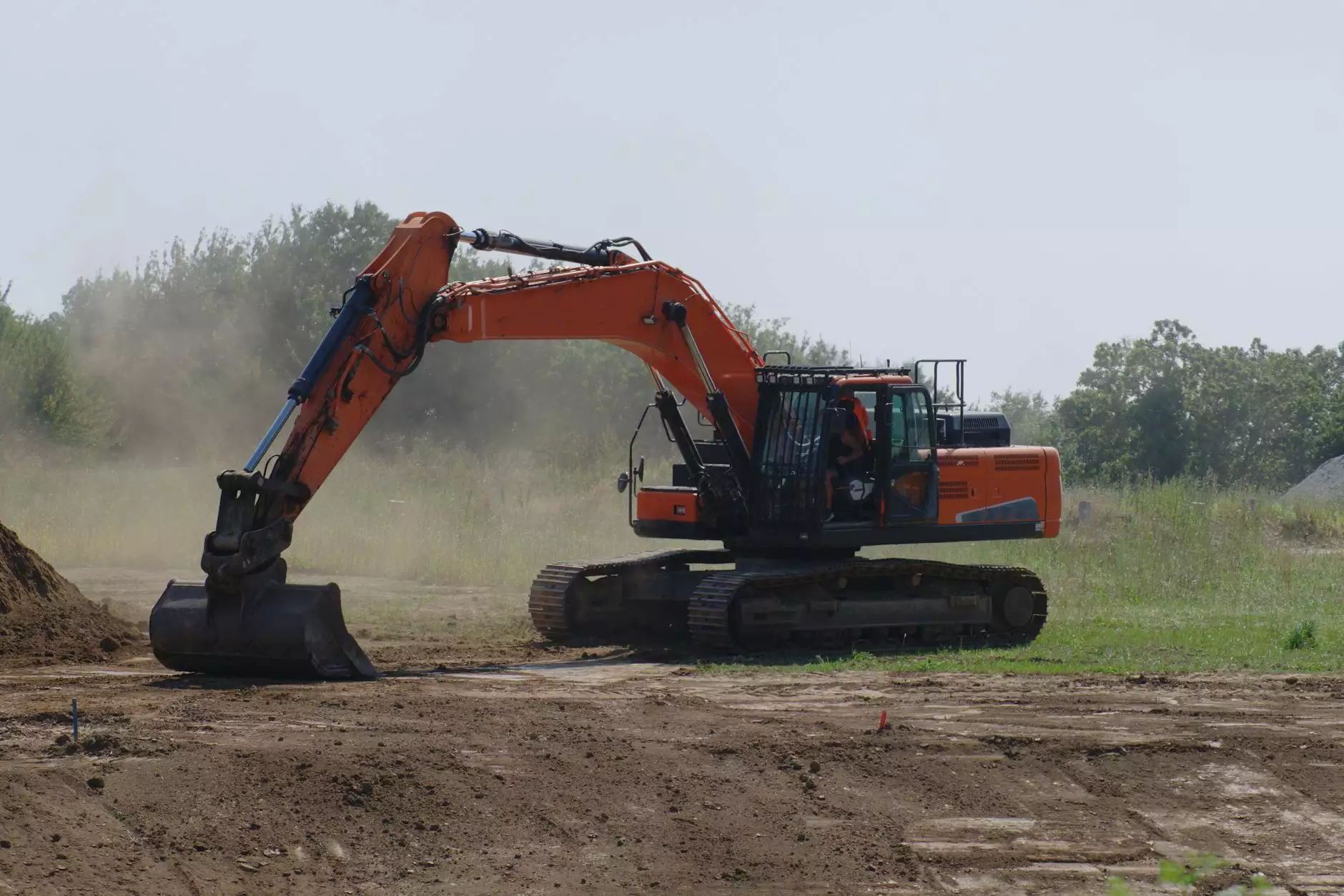Understanding Hydraulic Ball Products for Industrial Use

Hydraulic balls are an essential component in various industrial applications, playing a crucial role in the performance and efficiency of hydraulic systems. This article delves into the functionality, types, and benefits of hydraulic balls, along with their applications in different sectors. If you are looking for high-quality fittings for sale, this comprehensive guide will aid you in making informed decisions about your hydraulic system needs.
The Functionality of Hydraulic Balls
At the core of many hydraulic systems, the hydraulic ball significantly contributes to the overall operation. A hydraulic ball serves primarily as a valve or flow control mechanism, directing and regulating the flow of hydraulic fluid.
Key Functions of Hydraulic Balls
- Flow Control: Hydraulic balls are designed to manage fluid flow, ensuring that systems operate smoothly.
- Pressure Regulation: They help maintain the desired pressure level, preventing system failure or damage.
- Sealing: Hydraulic balls provide effective sealing to minimize fluid leakage, which is vital for maintaining system integrity.
Types of Hydraulic Balls
There are several types of hydraulic balls, each suited for specific applications. Understanding these types can help you choose the right component for your system.
1. Standard Hydraulic Balls
The most common type, standard hydraulic balls, are used widely in various hydraulic applications due to their versatility and reliability. They are manufactured from durable materials to withstand high-pressure environments.
2. High-Pressure Hydraulic Balls
For extreme conditions, high-pressure hydraulic balls are designed to operate under significant pressure without compromising safety or functionality. These balls are often used in heavy machinery and industrial applications.
3. Specialty Hydraulic Balls
Specialty hydraulic balls cater to unique applications and may include features like corrosion resistance or compatibility with specific fluid types. These balls are often custom-made to meet specific industry requirements.
Materials Used for Hydraulic Balls
The durability and performance of hydraulic balls rely heavily on the materials used in their construction. Common materials include:
- Stainless Steel: Known for its resistance to corrosion and strength, stainless steel is often used in hydraulic applications.
- Carbon Steel: While less resistant to corrosion, carbon steel provides excellent durability, making it a suitable choice for some hydraulic systems.
- Plastic: In lighter applications, plastic hydraulic balls may be used for their lightweight and cost-effective nature.
The Advantages of Using Hydraulic Balls
Incorporating hydraulic balls in your hydraulic systems boasts several advantages:
- Improved Efficiency: Hydraulic balls enhance the flow control, which can significantly improve overall system efficiency.
- Cost-Effectiveness: By reducing fluid loss and ensuring optimal pressure regulation, hydraulic balls can lower the overall operating costs of hydraulic systems.
- Enhanced Safety: A well-functioning hydraulic ball minimizes the risks of system failures, ensuring a safer working environment.
Applications of Hydraulic Balls
Hydraulic balls are used across numerous industries, each benefiting from their unique properties and functionalities. Some notable applications include:
1. Construction Industry
In construction equipment, hydraulic balls play a pivotal role in ensuring efficient operation of hydraulic lifts, excavators, and bulldozers. These machines rely on reliable flow control for optimal performance.
2. Manufacturing Sector
Manufacturing processes often involve powerful hydraulic systems for molding, pressing, and shaping materials. Hydraulic balls help maintain fluid flow and pressure, leading to consistent and high-quality production output.
3. Automotive Industry
In automotive systems, hydraulic balls are integral to braking and steering systems, ensuring smooth operation and response. Their reliability is essential for vehicle safety and performance.
4. Agriculture
Many agricultural machines, such as tractors and harvesters, use hydraulic systems to operate efficiently. Hydraulic balls facilitate better control of these systems, improving productivity in agricultural operations.
Choosing the Right Hydraulic Ball
Selecting the right hydraulic ball is critical to ensuring optimal system performance. Here are key factors to consider:
- Pressure Ratings: Assess the pressure requirements of your hydraulic system and choose a hydraulic ball that can handle these demands.
- Material Compatibility: Ensure that the material of the hydraulic ball is compatible with the hydraulic fluids you are using.
- Size and Specifications: Make sure the dimensions and specifications of the hydraulic ball are suitable for your system’s design and operational requirements.
How to Maintain Hydraulic Balls for Longevity
Maintenance is essential to prolong the life of hydraulic balls and ensure consistent performance. Here are some maintenance tips:
- Regular Inspections: Conduct routine checks to identify signs of wear or damage early.
- Fluid Quality: Use high-quality hydraulic fluids and regularly check their condition to prevent degrading the hydraulic balls.
- Proper Installation: Ensure that hydraulic balls are installed correctly to avoid stress and potential damage during operation.
The Future of Hydraulic Balls in Industry
As technology advances, the role of hydraulic balls in industries is expected to evolve. Innovations in materials and manufacturing processes could lead to more efficient, durable, and versatile hydraulic balls, enhancing their applications in various sectors.
Conclusion
Hydraulic balls are a crucial element of hydraulic systems across multiple industries. Their ability to control fluid flow and maintain pressure not only enhances the efficiency and safety of operations but also contributes to the long-term performance of machinery. Investing in quality hydraulic balls and ensuring proper maintenance practices will yield significant benefits for any business relying on hydraulic technology.
For those in need of fittings for sale, consider exploring the options available at fitsch.cn. Offering a range of high-quality hydraulic components, including hydraulic balls, fitsch.cn is dedicated to supporting businesses in achieving their operational goals.









